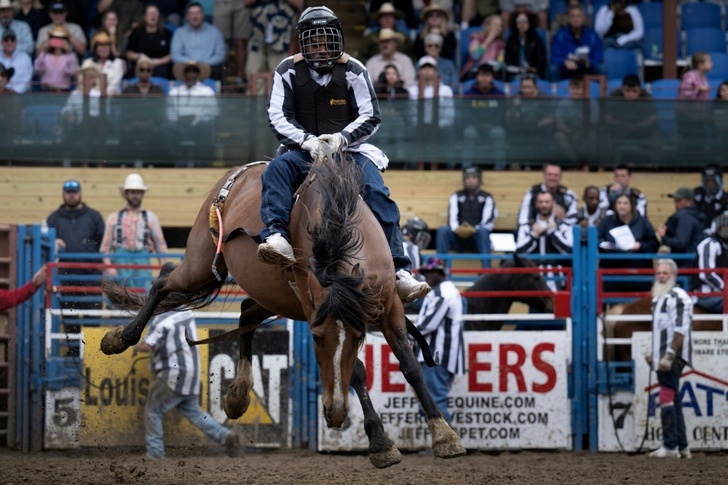At the sprawling Louisiana prison known as "Angola," inmates clad in black and white stripes go toe-to-toe with horses and bulls at a unique rodeo event now in its 57th year.
The rodeo, described on its website as the "wildest show in the south," features about a dozen events in which prisoners and professional cowboys compete under the watchful eyes of prison guards and the viewing public.
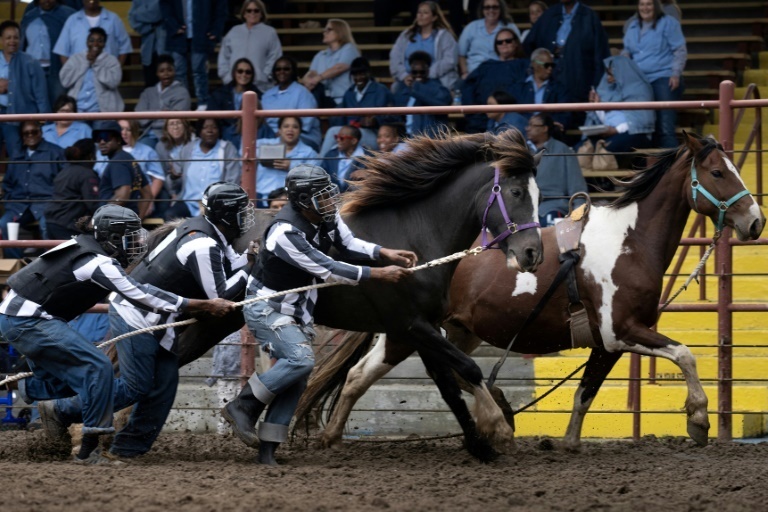
In the dirt-floored arena, inmates in striped uniforms, helmets and cowboy hats walk around freely and prepare for their upcoming shows.
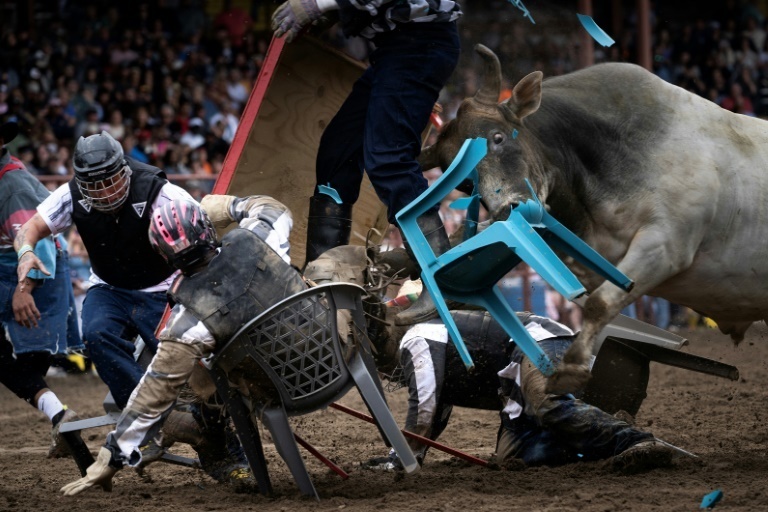
There's also "Guts & Glory," which is "perhaps the most exciting" event, according to the rodeo's website.
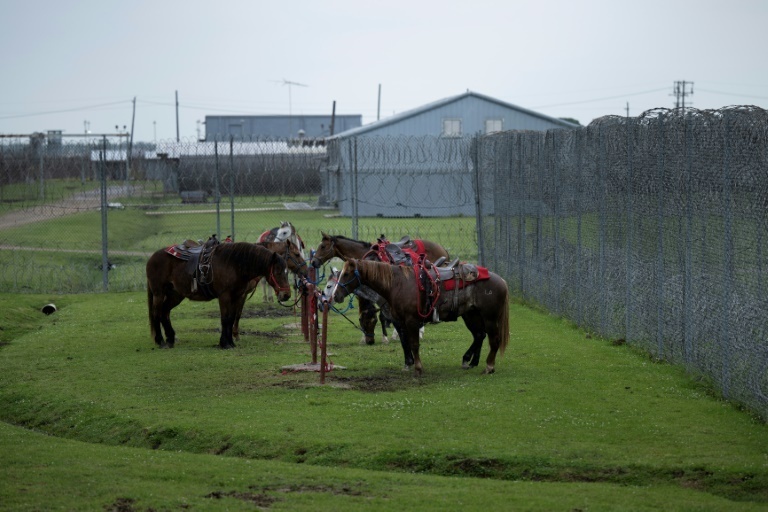
Convicts have taken part in the rodeo since 1965 at the prison, which is formally known as the Louisiana State Penitentiary.
The facility, the largest maximum security prison in the United States, sits on the site of a former slave plantation, and was previously known for its horrific violence and harsh living conditions.
The rodeos have become increasingly popular, attracting several tens of thousands of people each year. An admission fee goes to funding for inmate support programs.
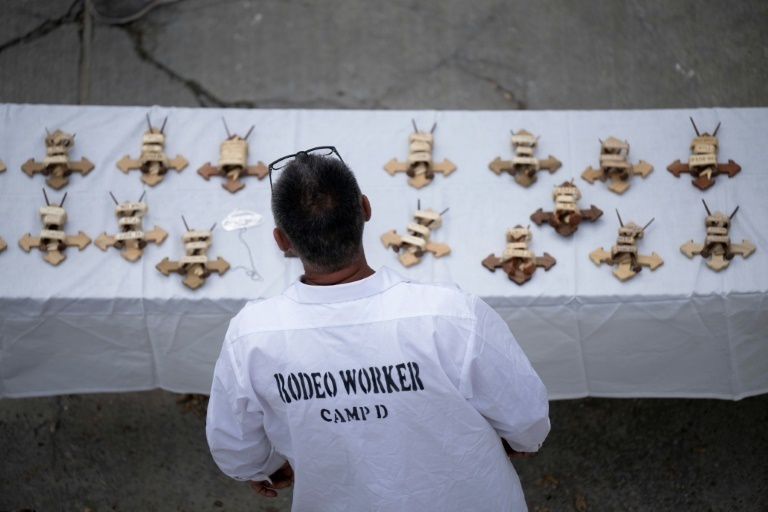
cha/rle/des/jh
© Agence France-Presse
Your content is great. However, if any of the content contained herein violates any rights of yours, including those of copyright, please contact us immediately by e-mail at media[@]kissrpr.com.
Source: Story.KISSPR.com

